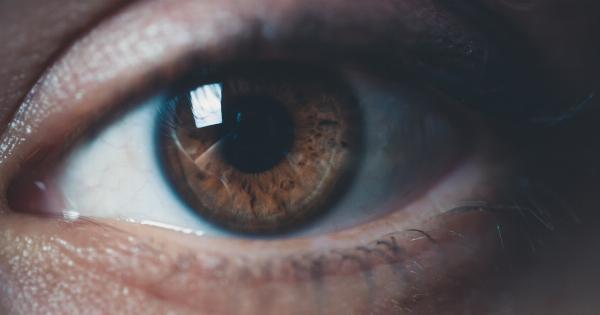Having good balance is essential for performing everyday activities and maintaining a high quality of life. However, many people experience balance problems at some point in their lives.
These issues can range from mild dizziness or unsteadiness to more severe difficulties that interfere with daily functioning. If you are experiencing problems with your balance, it is important to explore the potential causes and seek appropriate treatment.
Understanding Balance
Balance is the ability to maintain the body’s center of gravity within its base of support. It is achieved through the integration of various sensory information from the inner ear, eyes, muscles, and joints.
The brain processes this information and sends signals to the muscles to make the necessary adjustments needed to maintain stability.
When the system responsible for balance is disrupted, it can lead to a wide range of issues.
These balance problems can make simple tasks such as walking, standing, or even sitting down challenging and put individuals at a greater risk of falls and injuries.
Common Causes of Balance Problems
Balance problems can have various causes, ranging from temporary issues to underlying medical conditions. Here are some common factors that can contribute to balance problems:.
1. Inner Ear Disorders
The inner ear plays a crucial role in maintaining balance by detecting changes in head position and movement.
Disorders such as benign paroxysmal positional vertigo (BPPV), labyrinthitis, and Ménière’s disease can affect the functioning of the inner ear, leading to balance problems.
2. Medications
Some medications, particularly those prescribed for high blood pressure, heart conditions, or neurological disorders, can cause dizziness or other balance-related symptoms.
If you suspect that your medications may be contributing to your balance problems, consult your healthcare provider for an alternative solution.
3. Neurological Conditions
Certain neurological conditions, including Parkinson’s disease, multiple sclerosis (MS), and stroke, can impact the brain’s ability to process balance-related information.
These conditions may cause symptoms such as dizziness, unsteadiness, or a feeling of being lightheaded.
4. Musculoskeletal Issues
Problems with the muscles, joints, or bones can also affect balance. Conditions such as arthritis, muscle weakness, or injuries to the lower extremities can make it difficult to maintain stability while standing or moving.
5. Aging
As we age, it is common for balance to decline due to changes in vision, muscle strength, and sensory perception. Older adults may experience problems with balance, increasing their risk of falls and injuries.
6. Infections and Viral Illnesses
Certain infections and viral illnesses, such as the flu or ear infections, can disrupt the inner ear’s functioning, leading to balance problems. These issues are often temporary and resolve once the underlying infection is treated.
7. Anxiety and Stress
Anxiety and stress can have a significant impact on balance. When the body is under stress, it releases stress hormones that affect the functioning of the inner ear and make individuals feel more unsteady on their feet.
8. Cardiovascular Issues
Problems with blood circulation, such as low blood pressure or heart conditions, can cause balance problems. Reduced blood flow to the brain can lead to dizziness or lightheadedness, affecting balance and stability.
9. Eye and Vision Problems
Vision plays a crucial role in maintaining balance. Eye conditions such as glaucoma, cataracts, or macular degeneration can affect depth perception and visual acuity, making it harder to maintain balance and navigate the environment.
10. Poor Posture
Bad posture, particularly while sitting or standing for extended periods, can disrupt the body’s balance. It puts unnecessary strain on certain muscles, causing fatigue and making it more challenging to maintain an upright position.
Seeking Help for Balance Problems
If you are experiencing ongoing balance problems or if they are significantly impacting your daily life, it is essential to seek medical evaluation.
A healthcare professional, such as a primary care doctor, neurologist, or otolaryngologist, can assess your symptoms, review your medical history, and perform relevant tests to determine the cause of your balance problems.
Treatment for balance problems depends on the underlying cause. It may involve medications, physical therapy exercises, lifestyle modifications, or surgery in severe cases.
Physical therapy programs focused on balance training and strengthening exercises can significantly improve stability and reduce the risk of falls.
Preventing Balance Problems
While some balance problems may be unavoidable due to certain medical conditions or age-related changes, there are steps you can take to reduce your risk and maintain good balance:.
1. Exercise Regularly
Engaging in regular physical activity helps improve muscle strength and coordination, which are crucial for maintaining balance. Activities such as walking, swimming, or tai chi can be beneficial in enhancing stability.
2. Maintain a Healthy Diet
A balanced diet rich in vitamins and minerals supports overall health, including the function of the inner ear and the nervous system.
Ensure you consume a variety of fruits, vegetables, whole grains, and lean proteins to provide your body with the necessary nutrients.
3. Manage Stress
Practicing stress management techniques, such as deep breathing exercises, meditation, or yoga, can help reduce anxiety and its impact on balance.
Engaging in activities that you enjoy and finding time for relaxation is also essential for overall well-being.
4. Keep Your Environment Safe
Make sure your living space is free from hazards that may contribute to falls, such as loose rugs, cluttered pathways, or inadequate lighting.
Installing grab bars in bathrooms, using non-slip mats, and removing tripping hazards are essential steps in creating a safe environment.
5. Get Regular Eye Exams
Regular eye exams can help detect vision problems early on and ensure you have the appropriate corrective measures, such as glasses or contact lenses, to improve your visual acuity. Good vision is crucial for maintaining balance and preventing falls.
Conclusion
Balance problems can significantly impact daily life and increase the risk of falls and injuries. Understanding the various causes of balance problems is the first step towards finding appropriate solutions.
By seeking medical evaluation, implementing preventive measures, and following recommended treatments, individuals can enhance their balance, regain confidence, and maintain an active, independent lifestyle.





























